How Venezuela met Socialism? brief political history (1/5)
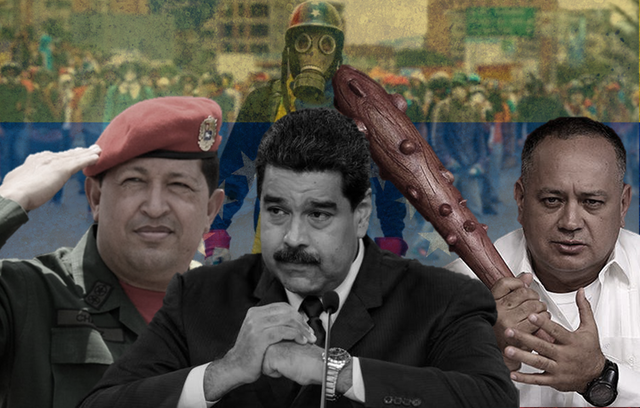
This is the First Part of a series consisting of 5 publications on the history of Venezuela. Currently this country is experiencing the worst crisis that Western society has known, hyperinflation, shortage of basic supplies, humanitarian crisis, violation of human rights, systematic violation of the rule of law, the highest rates of violent crime, crime, systematic corruption within institutions, indebtedness, unemployment, protests, repression, concentration of power, social division, the return of diseases that had been eradicated, malnutrition, high rates of infant mortality, cultural degradation, massive migration, in short, Venezuela suffers , in a high degree, of all social ills.
Index
1-Dictatorship of Juan Vicente Gómez, Start of the Oil Industry and Cradle of Marxism
2-Rómulo Betancourt vs Marcos Pérez Jiménez
3-Puntofijismo: Rise and Fall of the 4th Republic
4-Hugo Chávez and the Socialist Revolution of the 21st Century
5-Government of Nicolás Maduro
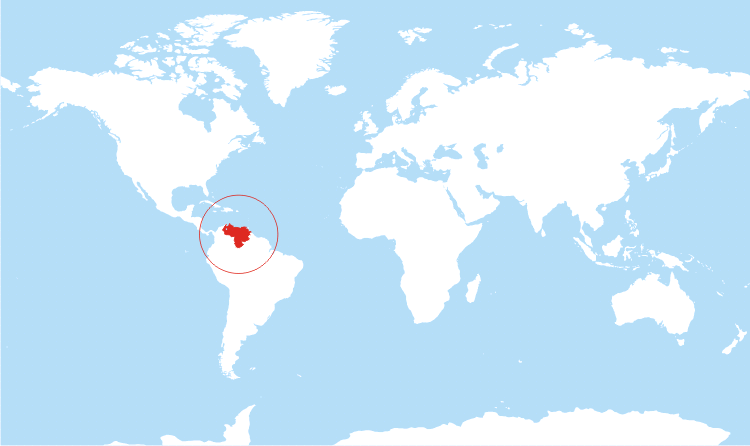
Well, you should know that in this nation things were not always so bad, had some very good times, others not so good, and certain moments really bad, for now, I will tell my vision about the history of Venezuela, and how he met the socialism.
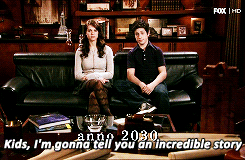
Dictatorship of Juan Vicente Gómez, Start of the Oil Industry and Cradle of Marxism
July 5, 1811, independence of Venezuela ...
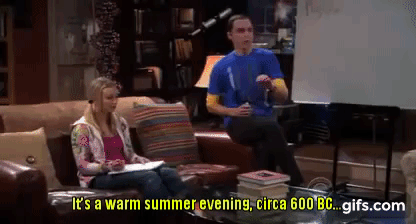
Venezuela hand in hand with Simón Bolívar and Francisco de Miranda declares its independence and establishes the First Republic, the Constituent Congress sanctions the first Constitution of the country, the first written in Spanish and the third in world history, however, the First Republic and its constitutional regime would only prevail for one year, because the Spaniards could recover militarily. It was not until the Battle of Lake Maracaibo, in 1923, when Venezuela was definitively separated from the Spanish Crown.
It is from this stage, when I can specify, that it begins to generate all the problems that the nation carries with it until now, through a mechanism of cause and effect, because just as each one of us carries the genetic load of our ancestors, peoples and nations carry with them the weight of their history.
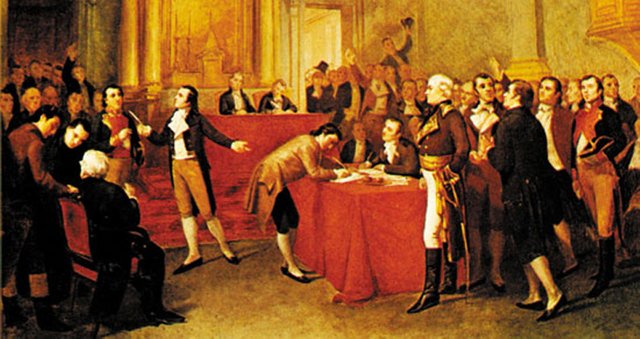
Look, since the independence of Venezuela and the future union and disintegration of Gran Colombia, this nation was involved in a series of interminable conflicts that led to a violent culture based mainly on civil war and military caudillismo, which It condemned the country to backwardness, political, social, economic and cultural.
The French Revolution broke the Old Regime, which was far from being a bad government, to launch into the mad adventure of proclaiming and establishing throughout the earth the freedom, equality and fraternity of all men. The terrible violence unleashed by its own process not only did not make it possible to achieve these ends but, in many ways, brought serious setbacks and deviations to the history of France and Europe. What came was not universal happiness but terror, the full-time guillotine, the invading wars, the personal predominance of Napoleon, to finish, as in an exemplary comedy, in the failed restoration of the Bourbons, in 1815, in the bourgeois monarchy of Luis Felipe, who did not satisfy anyone, and in the long oppressive and clumsy years of Napoleon III's caricature of empire. It was only almost a hundred years later, after the disaster of 1870, when the French were able to take a more fruitful and fruitful start in establishing an effective democracy.
The case of Venezuela is equally exemplary and, of course, affects us more directly. Independence was proclaimed with the highest political ideals but what came to emerge from fifteen years of destructive war was not only the annihilation of a civilized society that was beginning to flourish, but the most brutal forms of personal predominance and the absence of rights . It was almost a century of civil war that encompassed the entire territory and that destroyed any effective possibility of progress. The day in which the myth of the federal war is reviewed will be seen as the culminating point of a great political and social hecatomb, from which emerged a still more backward and primitive country than the one that proclaimed independence. Caudillismo, cheap demagogy, loss of the social ends of a national life, were the fruits of those long years of violence unleashed.
Arturo Uslar Pietri, A Venezuelan intellectual, historian, writer, television producer and politician.
I leave this stage of history present because it will mark the path of this nation, since it establishes the point between what Venezuela was, what it is now, and what it has always wanted to be. A nation that proclaimed its own independence and whose army rode throughout the continent in the name of independence and freedom. Once his sovereignty was reached, he did not know what to do with it, and that seeking to rise to the highest values, he fell into countless internal conflicts that led to his own political, social, economic and cultural destruction.
December 19, 1908, arrival of Juan Vicente Gómez to the presidency of the republic ...
Its objectives were as simple as coherent. To end the civil wars, which then seemed an almost utopian purpose, to definitively consolidate peace and establish a personal, authoritarian and paternal regime to make Venezuela a country of "men of work", according to its own example and experience.
His political program was summarized in three words: peace, work and union. That meant no more civil wars or local caudillismo, the maintenance of a stable central authority system that would stimulate traditional production and ensure peace and, of course, the definitive destruction of traditional political parties, represented by armed caudillos.
Arturo Uslar Pietri, A Venezuelan intellectual, historian, writer, television producer and politician.
Gomez had to use repression and the use of force to centralize power, which until then was divided between different military leaders who were scattered throughout the national territory, in this way, his regime converted, without the endorsement of the providence, the figure of the President, in a kind of King without Crown, and from his mandate to our times, despite having on various occasions with different republican forms of division of powers, power would always be concentrated in the presidential figure.
Nobody could doubt that, at the time of the disappearance of Gómez, the man who was legally at the head of the Armed Forces, in a country lacking any structure of political organization other than the government, would be in the effective possession of power.
Arturo Uslar Pietri, A Venezuelan intellectual, historian, writer, television producer and politician.
The mandate of Gomez, which covers from December 1908 until his death in December 1935, although he had a kind of alternation in the presidency on two occasions, the truth is that Gomez always had the power, and these alleged presidents, were not more than his puppets.
In this period, the country manages to prosper above all in the economic and cultural field. Venezuela, which was a mainly agricultural country and depended on its exports of cocoa and coffee beans, would become an emerging oil power after American and English companies, later absorbed by Royal Dutch Shell, began to extract oil from industrial form since 1914 in the well Zumaque I. The repercussion was even greater after in 1922, the looks of all the oil industrialists were put in Venezuela, when the oil well Barroso II burst with a jet of 40 meters of height and a flow of 100,000 barrels per day of crude, visible at 45 kilometers, during nine days it rained oil on the roofs and the streets of the town, this being front-page news in the main newspapers worldwide, due to the potential shown by the oil fields of Venezuela for all the big investors.
Note: sorry if I am too detailed with the oil issue, is that I worked in the Venezuelan oil industry, and I know almost all the details and the history of this industry, so I usually write without stopping.
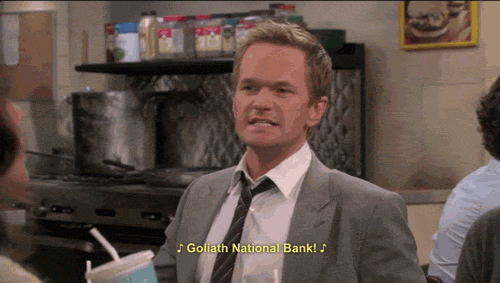
Many things he achieved during his long domination. Inner peace was made stable through the creation of a national armed force that came to replace the collective and personal troops of the regional caudillos forever. It ended with the traditional disorder of the Public Treasury establishing an efficient system of collection, accounting and payments, which allowed it, for the first time in many years, to comply exactly with the national budget, accumulate large reserves and, finally, cancel the external debt that came weighing on the Republic since 1830. It had no ideology or intended to impose any, it became independent of the traditional parties.
Arturo Uslar Pietri, A Venezuelan intellectual, historian, writer, television producer and politician.
In short, Gomez achieved almost all of its objectives, unified Venezuela, ended political dissent, paid all the debt that had been incurred by the nation throughout the nineteenth and early twentieth century, and finally was able to impose some order on what that until then was an anarchy, however, there were several social problems that could not be solved efficiently.
Throughout the country, a growing clamor of demands was raised to meet the needs, large and small, which then appeared as postponed for too long. From every municipality, petitions of all kinds arrived at the central government: schools, hospitals, public works and countless denunciations of abuses and accusations against past and recent officials.
Arturo Uslar Pietri, A Venezuelan intellectual, historian, writer, television producer and politician.
Due to social problems, Venezuelan youth will begin to study the possibility of ending the government of Gomez and establish a democracy or a popular model. Young people who, precisely because they were young, were unaware of the anarchic lifestyle and the constant civil wars that took place throughout the national territory before the arrival of Gomez, only see him as a tyrant, and begin to oppose him. one way or another.
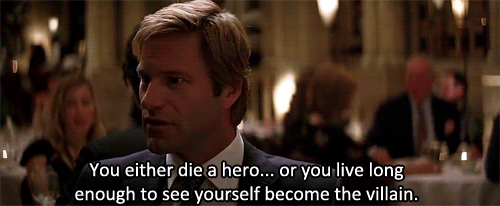
Gomez, inflexible, did not stop to apply force to maintain order, in such a way, many of those young people went to jail or exiled outside the country, this would end up being a turning point in the Venezuelan political future, because According to my personal appreciation, it is in the prison, which was nothing more than a Marxist antrum, where the communist and socialist ideology begins to be cultivated.
The peculiarities of Venezuelan prison life, isolation, overcrowding, leisure, contained violence, desperate search for ideas, action projects, redemptive formulas, intellectual novelties, in the midst of the lack of books and communication with the outside, gave the conditions for an active seminar of Marxist-Leninist formation will be formed among political prisoners. For young people it was the dazzling revelation of an entire unknown world of ideas that gave them a new explanation of history, a complete and attractive project for political and social change and even a philosophical explanation of the future of humanity.
Arturo Uslar Pietri, A Venezuelan intellectual, historian, writer, television producer and politician.
How efficient are communists in converting people to their ideology, right? Apparently it did not matter that they were in jail, nor the absence of books and information, they always find a way to reach the minds of young people with political projections.
With some time, and when the political situation allowed, Gomez released all those young converts to Marxism and allowed the return of all those who were exiled.
He was tough and inflexible but not bloodthirsty. To his most dangerous adversaries, open or overlapping, he imprisoned them for many years, without ever shooting anyone. It allowed all economic, social and cultural activities that would not directly affect his regime and on one occasion, in 1925, he freed all political prisoners and allowed the exiles to return to the country.
Arturo Uslar Pietri, A Venezuelan intellectual, historian, writer, television producer and politician.
We must bear in mind that in Europe and in the rest of the world, the communist organizations were very well organized and prepared to take power by the necessary means, so in Venezuela, an entire generation of young politicians was formed in prison, indoctrinated by Marxist ideas, and that they would be set free.
The part that went outside, very light of ideological baggage, necessarily gravitated towards the foci of the incipient communist struggle that was in some parts of the Caribbean. These circumstances, which may seem fortuitous, came to be decisive for the political future of the country. By the concatenation of the facts, the most capable and avid part of action of a whole generation was confined to a Marxist indoctrination, which shaped a predominant doctrinal vision of the country and political action, with immense future consequences.
Arturo Uslar Pietri, A Venezuelan intellectual, historian, writer, television producer and politician.
During these same years, Hitler would come to power in Germany, and the future of Europe and the world would take a warlike course, in a struggle between the National Socialist Racial State, the Allied powers and Bolshevik Russia.
In 1942, in the middle of the Second World War, Venezuela, now led by Isaías Medina Angarita, who had replaced Eleazar López Contreras, Gomez's successor, plated a restructuring of the oil industry. At first sight it might seem an unwelcome initiative, since the Allies could interpret that as an impertinence of a small country in the midst of war, but by that time Venezuela had become the third largest oil producer, and the first exporter in the world, which represented a substantial part of the fossil energy used during the war.
Trying to do so was an act of nationalist faith, but being able to achieve it was possible, in large part, as a consequence of the moral authority with which the small country could defend its interests against the great oil-consuming powers.
In financial terms, this has been the biggest negotiation that a Venezuelan government has ever faced. A country that by then barely reached a level of public spending of one hundred million dollars per year entered into discussions with the most powerful oil companies in the world the new conditions of exploitation of an immense oil potential whose estimated value should be in the order of the hundreds of billions of dollars.
Arturo Uslar Pietri, A Venezuelan intellectual, historian, writer, television producer and politician.
It was with this restructuring of the oil industry that Venezuela would go from being a poor country, to become a very rich one.
During this entire period that ends with the end of the Second World War, from the countless civil conflicts, through the authoritarian government of Juan Vicente Gómez, the discovery, development and reform of the oil industry, and of course, the repression of the political freedoms, which would end, unwittingly, in the gestation of a generation of young students who were politically cultivated under the Marxist ideology, Venezuela would cease to be a distinctly agricultural, decentralized, poor and anarchic nation, to become a nation with a economy focused on the oil industry, centralized and that will be slowly becoming very rich, but unequal.
Great work. Most people don't know the origin story of communism in Venezuela. I'm interested in knowing how religion was dragged into this. I don't know much about what happened but I'm sure religion played a part.
Keep writing. People must know these stuff. Resteemed for visibility.
Thank you so much! The Catholic Church in Venezuela opposed the most radical and doctrinaire socialism, but not the social democracy, they have been opposed to the regime of Chavez and Maduro, but not the previous social democratic regimes. In a way, they were complicit in what happened in those years.
Can't believe I missed this series!(not too late though)
Thank you! I did the story to tell what happens in Venezuela, but not only tell the story of the government of Chavez and Maduro, but tell how was Venezuela before socialism, explain why socialism came, and demonstrate that socialism came before Chávez, in a version less strong, but still came.
A well written and informative article. Looking forward to reading the full series.. Resteemed
Thanks!